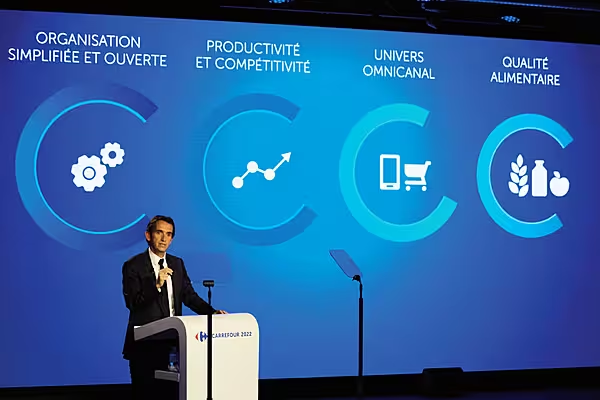Carrefour is closing in on a year since the launch of its much-heralded 'Carrefour 2022' transformation plan. Yet recovery in its home market isn't something that is guaranteed to happen overnight. This article first appeared in ESM Issue 6 2018.
Rome wasn't built in a day, as the old saying goes, and for a retailer as big as Carrefour, that's certainly the case. When former Fnac Darty chief executive Alexandre Bompard was parachuted in to turn around the business after several years of relative stagnation, analysts and shareholders alike may have anticipated a quick fix, particularly in the retailer's hypermarket-heavy domestic market.
But that turnaround has been a while in coming, and while Carrefour recently posted positive third quarter results, there's no shortage of interested parties seeking a greater acceleration in its performance in the coming year.
The Hypermarket Challenge
As Bompard memorably put it at the launch of the group's Carrefour 2022 strategy, the competitive landscape in France has seen a "brutal transformation" in recent years, with hypermarkets, once the bastion of modern retailing, in the firing line.
Rather than adopt a reactionary approach and close wide tranches of Carrefour's hypermarket estate, Bompard and his team have attempted to make them more relevant: a path that is slow to ignite public imagination.
As the retailer announced in its third quarter results, around 10,000 square metres of hypermarket space has already been reallocated, either to other outlets or to 'hybrid order preparation platforms for online orders'.
A further 40,000 square metres are the object of 'advanced studies', with the reduction in selling area chiefly focused on the non-food segment. Shoppers simply aren't going to hypermarkets to purchase TVs and white goods any more.
What to do with hypermarkets isn't a solely French issue, of course – in Belgium, five Carrefour hypermarkets were downgraded to supermarkets in November, while in Italy, one Carrefour hypermarket saw a 45% reduction in sales area – but it is France that the focus inevitably falls on when analysts are discussing the group's future strategy. And with good reason – the segment accounts for more than half of Carrefour's sales.
In the third quarter, Carrefour saw an organic sales increase of 0.7% in France, to €10.1 billion, with hypermarkets seeing a 0.6% decline. The group's supermarkets, meanwhile, were up 1.0%, while convenience and other formats saw a 4.5% rise. At a global level, group sales rose by 2.3%.
Little Movement
Cynics will also point to the Kantar Worldpanel figures for France, where Carrefour has failed to make any ground on its main rival, market leader E. Leclerc.
As of P11, the four-week period covering part of October and November 2018, Carrefour stood on 20.0% market share, with E.Leclerc on 20.6%. Rewind to the same period last year, and Carrefour was on 20.3% share to E. Leclerc's 20.5%, meaning that somewhere along the way, Bompard and his team have lost ground to their nearest rival.
Incidentally, Carrefour's hypermarket division currently sits on 10.5% (total market) share, which is down on the 10.7% share it held in the same period last year.
Commenting on Carrefour's most recent market share performance, analyst Bruno Monteyne of Bernstein Research described it as "disappointing", noting that hypermarket sales were likely lower due to stronger promotional activity last year.
A positive for Carrefour, however, is that "Online gained +15bps and contributed to over 40% of the online market's growth," Monteyne added. "These are encouraging signs that [Carrefour's] online strategy is starting to bear fruit. Up to the end of Q3, Carrefour added 149 Drives in France and plans to add a further 21 to hit its target of 170 for the year."
Positive Momentum
Overall, looking at where Carrefour is now, compared to where it was when Bompard took charge in July 2017, there's no doubt that the retailer finds itself in a stronger position, with plenty of positive notches on Bompard's belt to date – disposal of the former DIA stores, purchasing alliances with Système U and Tesco, assortment simplification, cost reduction, etc.
But its French retail portfolio will likely be the yardstick on which Carrefour's 2022 strategy will be judged, and while there have been promising steps, more needs to be done. C'est le moment!
© 2018 European Supermarket Magazine – your source for the latest retail news. Article by Stephen Wynne-Jones. Click subscribe to sign up to ESM: European Supermarket Magazine.














